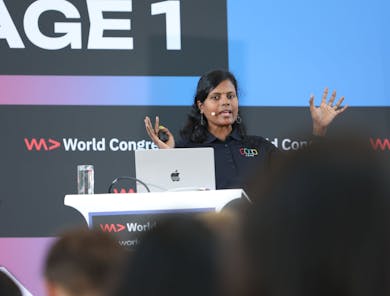Jobs, jobs, jobs
Date of birth, nationality, photograph, marital status – all these are relevant information for application dossiers, depending on the target country of your application. It can be somewhat confusing to catch up on the latest standards. What’s more, an increasing number of companies, even in German-speaking areas, are asking for an English application dossier. Therefore, it is crucial to read the job advert in detail to avoid missing any relevant requirements and information. This is a short introduction to the world of job applications:
Job advertisements: Different companies – different applications
More and more young start-up companies publish job adverts, which vary from others in specific ways. Often the tone is very different – to address young applicants, companies try to present themselves more casually and informally than any traditional employer. It can be an advantage to reply with a similarly casual cover letter. An example could be the right form of address – if the job advert is written informally, you could start with a casual “Hey there” while the traditional version of addressing your new employer is still “Dear Sir or Madam”. However, if not explicitly requested, it is still essential to hold on to the application standards of the respective countries.
Cover letter: Be different and creative!
If an employer demands a full application dossier, they usually mean a cover letter and a CV. While writing your cover letter, it is essential not to rely on empty phrases. Especially a creative introduction to your letter can be a door opener because you can and will stand out from your competitors if you try to think outside the box. Why not start with recent news concerning your future employer? Depending on the industry, also relevant quotes of famous people can be of use for a good intro.
Match your skills with the job advert
In a second paragraph, you should write about your experiences that lead you to the conviction that you are the ideal candidate for the advertised position. Be cautious – do not retell your CV. You should rather have a look at the required skills and experience described in the job advert and explain where you have gained these competencies in the past. Please don’t overdo this, pick out the approximately five most relevant hard skills you can offer and concentrate on those. If you write too much, HR officers can quickly get bored with your application.
Do not only describe your hard skills but also your soft skills and, if also required, your expertise in languages and IT. Why are you a team player? Which experiences have made you the resilient person that you are? Giving that information will add to the credibility of your application.
Specify salary expectations or not?
Especially in Germany, it is common for employers to ask for salary expectations in job advertisements. If this is the case, it is of utmost importance to meet this requirement. If you are unsure of the amount you should state, compare it with your previous salaries or have a look at various websites, which offer salary comparisons. In Germany, for example many people use sites like www.gehalt.de or www.indeed.com.
CV: As much as necessary, as little as possible
Depending on the country you would like to apply in, you have to stick to the respective application standards. Dossiers in Europe usually contain a CV, whereas in America they work with so-called resumes. The difference is mainly the scope of the content. CVs can be up to three or four pages long (for applicants with lots of work experience), while resumes should not exceed two pages.
While it is entirely reasonable in German-speaking countries to give information about your nationality, age, and marital status, in the UK and the USA this information is completely unwelcome.
However, an additional feature of every English application is the so-called executive summary, which is a short text about your educational background and most relevant competencies written in the third person.
Divide your CV into subsections
To give a clear overview of your previous educational and vocational background, you should divide your CV into subsections like “professional experience”, “Education”, “Internships”, “Further Training”, “Additional information” and, if applicable, excerpts of a publication or project list. Your future employer will find it easier to match his open position with your background if you elaborate on your professional experience. Therefore, add a couple of bullet points with relevant tasks and also achievements under each position you have mentioned. A CV without gaps, in which all the relevant information, including former employers, locations, and position titles are mentioned, will leave an organized and orderly impression. On the other hand, the American resume does not have to be gapless – it is far more critical to mention all relevant experience the applicant can provide.
About the author: A guest article by Anna Lena Benz, who works for the online application service “Die Bewerbungsschreiber.” Over the years, “Die Bewerbungsschreiber” have specialized in creating individual and professional application documents and furthermore offer a variety of additional products and services concerning the topics applications and career advancement.









